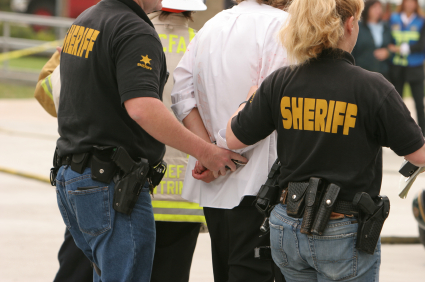Bankruptcy cannot wipe out obligations directly from a criminal conviction, but still the help it CAN give may make all the difference. 1. Bankruptcy can get rid of other debts so you can concentrate on your criminal defense, both financially and emotionally. 2. It can help you to be able to pay your conviction-related debts and expenses.
Getting charged with a crime is a massive wake-up call. It makes you realize that you need to put all your possible attention into fighting that charge, considering the potential immediate and life-long consequences. All legal options need to be on the table, including using tools that can help indirectly, like bankruptcy. You need a major life re-prioritization, including finances. Bankruptcy often helps by freeing up cash you’d otherwise be paying to creditors, by protecting you from your creditors when you don’t pay them, and by allowing you to retain those debts (such as your vehicle loan) that are important for your future.
1. Bankruptcy “discharges” (legally writes off) your debts.
Right after being charged with a crime: You’ve got to figure out how to pay for your defense attorney. Unless you have a big bunch of money handy, or have rich and generous relatives, you will need to get creative. You may have to sell assets. You may have to give up some collateral to your creditors, such as a relatively expensive car or truck. You may have to stop paying your creditors-all or most of them. And filing bankruptcy quickly may well be the most sensible way to immediately streamline your finances
After your criminal case has been resolved: You may have had a gap in income-if you had to do some time, and/or if you lost your job in the midst of all this. You may have less income now. In spite of this, most of the time you must pay ongoing financial obligations to the criminal justice system. Paying these is absolutely necessary to satisfy your release or probation conditions. These payments can include restitution, probation fees, treatment costs, and drug or electronic monitoring fees. A bankruptcy would not write off any of these, but would likely write off all or most of your other debts so you would have a better chance at keeping up with your criminal justice related expenses. Just Imagine if you had your wages or checking account garnished out of the blue by an old creditor just at the worse time, leaving you without money to pay your criminal obligations, risking re-incarceration.
2. Bankruptcy allows you to pay other necessary expenses and debts.
Often a criminal court imposes other kinds of conditions on you beyond direct fines and such. You may be required keep current on certain non-criminal obligations. Depending on the nature of your conviction, you may have to file and pay income taxes on time, keep your vehicle insurance always in effect, or keep perfectly current on child support. Without a bankruptcy to write off all or most of your other obligations, you may not be able to take care of these crucial commitments.
Also, you are often obligated by the terms of your conviction or of your release to attend various scheduled events-for doing community service, going to probation meetings, or simply keeping a job. So, reliable transportation is essential. You need to have money available each month to pay your car payments, and keep it repaired and insured. Or at least to pay for public transportation, if that’s a feasible alternative for getting to where you need to get to. Bankruptcy could well be the most sensible way to enable you to pay these absolutely necessary expenses.

